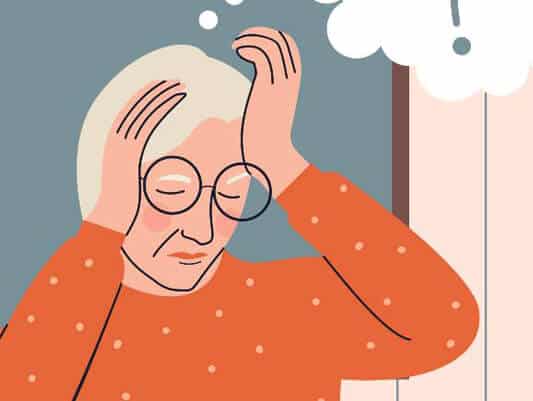Dementia
Table of Contents
Dementia
Dementia is a syndrome characterized by deterioration in cognitive function (i.e. the ability to process thought) that exceeds what would be expected from the normal effects of biological aging. Memory, thinking, orientation, comprehension, calculation, learning capacity, language, and judgment are all affected. The state of consciousness is unaffected. Changes in mood, emotional control, behavior, or motivation are frequently associated with and occasionally precede cognitive impairment. Dementia is caused by a number of diseases and injuries that affect the brain, either directly or indirectly, such as Alzheimer’s disease or stroke. Dementia is now the seventh leading cause of death among all diseases, as well as one of the leading causes of disability and dependency among the world’s elderly. Dementia has physical, psychological, social, and economic consequences not only for dementia patients, but also for their caregivers, families, and society as a whole.There is frequently a lack of awareness and understanding of dementia, which leads to stigma and barriers to diagnosis and care.

Types Of Dementia
Each person is affected differently by dementia, depending on the underlying causes, other health conditions, and the person’s cognitive functioning prior to becoming ill. The signs and symptoms of dementia can be classified into three categories.
There are numerous types of dementia. Alzheimer’s disease is the most common type, accounting for 60-70 percent of cases. Other major types include vascular dementia, Lewy body dementia (abnormal protein aggregates that form inside nerve cells), and a group of diseases that contribute to frontotemporal dementia (degeneration of the frontal lobe of the brain). Dementia can also develop following a stroke or in the context of certain infections such as HIV, harmful alcohol use, repetitive physical brain injuries (known as chronic traumatic encephalopathy), or nutritional deficiencies. The distinctions between dementia types are blurred, and mixed forms frequently coexist.
Approach To Dementia
There is no cure for dementia currently available. To date, anti-dementia medicines and disease-modifying therapies have had limited efficacy and have primarily been labeled for Alzheimer’s disease, despite the fact that numerous new treatments are being investigated in various stages of clinical trials. Furthermore, much can be done to help and improve the lives of people living with dementia, as well as their caregivers and families.
The primary goals of dementia care are as follows: early diagnosis to promote early and optimal management; optimizing physical health, cognition, activity, and well-being; identifying and treating accompanying physical illness; understanding and managing behavior changes; and providing information and long-term support to caregivers.
Although age is the most powerful known risk factor for dementia, it is not an unavoidable result of biological aging. Furthermore, dementia does not only affect the elderly; young onset dementia (defined as the onset of symptoms before the age of 65) accounts for up to 9% of cases. Physical activity, not smoking, avoiding harmful alcohol use, controlling weight, eating a healthy diet, and maintaining healthy blood pressure, cholesterol, and blood sugar levels have all been shown in studies to reduce the risk of cognitive decline and dementia. Depression, social isolation, low educational attainment, cognitive inactivity, and air pollution are all risk factors.
For More Information
Please do not hesitate to contact us for more information on the subject.



